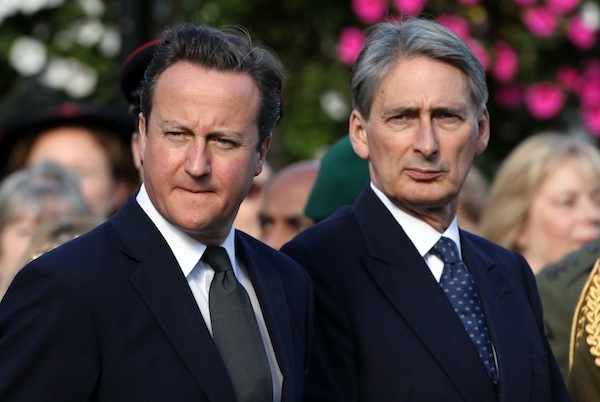Tory MPs are becoming increasingly agitated about defence spending and whether or not Britain will maintain its defence spending at 2 per cent of GDP. They do understand the pressures that protected spending for other areas puts on budgets such as defence, but as I explain in the Times today, they are unhappy that certain people who should know better have been telling them that there are ‘no votes’ in defence.
‘No votes in defence’ is an old saying, but it’s still striking that Philip Hammond used it at all when briefing Conservative MPs on foreign affairs and defence. Some of them have pointed to YouGov’s finding last weekend that 49 per cent of voters think Britain should spend more on defence as a sign that he’s wrong, though of course the Foreign Secretary and former Defence Secretary is right that the military does not figure in the top three issues that people base their voting decision on. Others think the nightly news bulletins featuring jihadis and Vladimir Putin’s aggression in Ukraine will make voters feel less secure, when ‘security’ is one of Cameron’s campaign buzzwords.
In any case, there are generally votes in politicians keeping their promises, though most of them go to anti-politics parties because politicians continually make and break high-profile pledges. The Tories have not promised to maintain spending at 2 per cent, but they have lectured other countries on doing so. This is what David Cameron said at the Nato summit in Wales last year:
‘Britain is one of only four countries that currently spends 2% of its GDP on defence. But others will now do more.
‘With today’s Wales Pledge every NATO member not spending 2% will halt any decline in defence spending and aim to increase it in real terms as GDP grows, and to move towards 2% within a decade. But it’s not just the amount of money that matters; it’s also about spending on equipment you can actually deploy. So we have agreed that a fifth of defence budgets should be dedicated to major new equipment.
‘Here in Britain we have the second largest defence budget in NATO; we have the biggest in the whole of the European Union. We have taken long term, often difficult, decisions to put our defence budget on a sustainable footing. And the fruits of this are now coming through.’
Tory MPs are trying to quote this back at ministers as often as possible, pointing out that it doesn’t seem quite right to be telling other Nato members to move towards 2 per cent in a decade when all the projections are that British spending will move away from 2 per cent. They are also being helped by the sheer number of backbenchers who are worried about this issue: concern has spread far wider than the usual suspects on this matter, and MPs who bring defence up unprompted include those who previously thought very little about it.
The political risk for Cameron is that he thinks that the low rumblings currently taking place in the party mark the limit of objections to a failure to protect the defence budget. He is likely to be proven very wrong in this assumption after the election, if he remains in office.







Comments